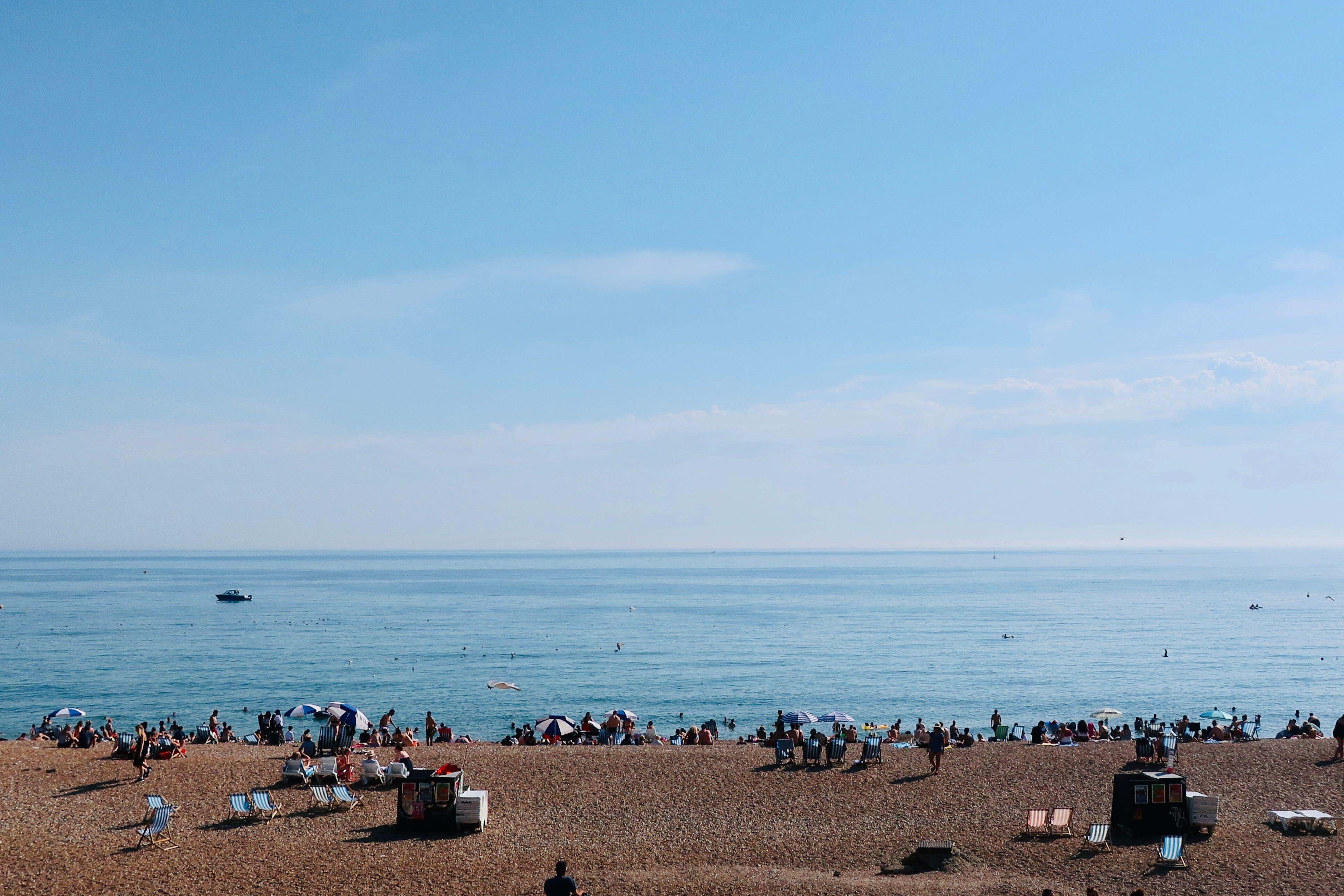6 triggers asthma sufferers should watch out for this summer
As the weather heats up, a charity is urging those with lung conditions to take extra precautions.

Summer brings days out, holidays and festivals, but for those with lung conditions it can also be a risky time of year.
High pollen levels, pollution, heat, and even smoke from things like BBQs can be dangerous, so it’s important to know what precautions those who are vulnerable need to take, say Asthma + Lung UK.
“We all look forward to summer and all the fun it brings with it, but people with asthma and other lung conditions must be careful to keep themselves safe too,” says Erika Radford, head of health advice at the charity.
“Things like hot weather, dust in the atmosphere, or higher levels of pollen can make it harder for those with lung illnesses to breathe. Strong emotions, stress and even laughing a lot are also known asthma triggers, so we want people to be armed with the knowledge they need to protect themselves while enjoying themselves in the sun.”
Here are the summertime triggers to look out for and how people with lung conditions can protect themselves.
1. Hot weather
“Hot weather can be problematic for people with asthma or other lung conditions, because warmer air can cause the airways to narrow, leading to coughing and shortness of breath,” says Radford. “Strong sunshine also causes the level of ozone and other air pollutants in the atmosphere to rise, which can trigger symptoms.”
She advises using your preventer inhaler regularly as prescribed and carrying your reliever inhaler everywhere.
“Staying out of the heat and in shaded areas as much as possible and cooling down with a handheld fan can help relieve breathlessness. Keep hydrated with regular cold drinks and take a cool shower if you become too hot.”
Also, make sure you keep inhalers in a cool place out of direct sunlight, so they continue to work well, and in a cool bag when you’re out and about. “Don’t add any ice to the bag though, as your inhaler needs to be kept dry,” she says.
2. Pollen
Pollen levels tend to be highest between May and September.
“Pollen is a trigger for almost half of people living with asthma and a quarter of people with chronic obstructive pulmonary disease (COPD),” Radford says.
Again, minimise the impact of pollen with your inhalers.
“Taking antihistamines or using a steroid nasal spray to reduce their allergic reaction to pollen is also really important,” she adds, “As it’s this allergic reaction that can cause your airways to narrow and fill with mucus, potentially setting off an asthma attack.”
3. Aerosols
“Sweating more in the heat means you may want to carry things like deodorant or hairspray with you while commuting to work. But some of these sprays contain volatile organic compounds (VOCs) which can cause irritation to the lungs and may increase the risk of experiencing symptoms or having an asthma attack,” Radford suggests.
“If you live with a lung condition, your airways are more likely to be irritated, so try to use allergy friendly and chemical-free products, which have lower levels of VOCs and are usually fragrance-free, on your travels.”
You may also benefit from using solid products, like roll-on deodorant. Unlike sprays, these won’t get into the air for you to breathe in.
4. Dust
Dusty holiday homes, camping equipment or sun loungers that have been kept in storage can contain dust mites, which many people with lung conditions like asthma are allergic to. This allergic reaction can cause your airways to inflame and produce more mucus, Radford says.
If you’re getting dusty items out of storage, vacuum them or wipe them down with a damp cloth before use, ideally outdoors – or get someone else to do this for you. If you use airtight plastic bags or boxes when you pack the items away again, they are likely to get less dusty through the year when not in use.
Make sure you carry antihistamine medicine in case your dust allergy is triggered.
5. Smoke
There are likely to be people puffing away on cigarettes or vapes outdoors when the weather is nice, and it’s wise to stay away from them if you have a lung condition.
“Smoking and breathing in secondhand smoke can not only make existing symptoms such as breathlessness worse and trigger asthma attacks, it can also cause many lung conditions, including COPD, obstructive sleep apnoea (OSA), and lung cancer,” says Radford.
“Smoke from BBQs or grills can also trigger asthma so if you are hosting a gathering, try and get someone else to cook and stand well away from the area.”
6. Mould
Hot, damp environments like the inside of a tent can be breeding grounds for mould spores, which can grow in damp places in just 24 hours, says Radford.
“If you are allergic to mould, this can cause symptoms like coughing, wheezing or sneezing. In those with asthma, it could trigger asthma symptoms. Exposure to mould can also cause an allergy or hypersensitivity to it, or a fungal infection within the lungs.”
So if you are going camping this summer and do notice mould or a damp and musty smell in your tent or on sleeping bags, make sure it’s removed and they’re fully dried and aired afterwards.
For more information on how to stay safe with a lung condition visit asthmaandlung.org.uk or call the Asthma + Lung UK helpline on: 0300 222 5800.
Bookmark popover
Removed from bookmarks